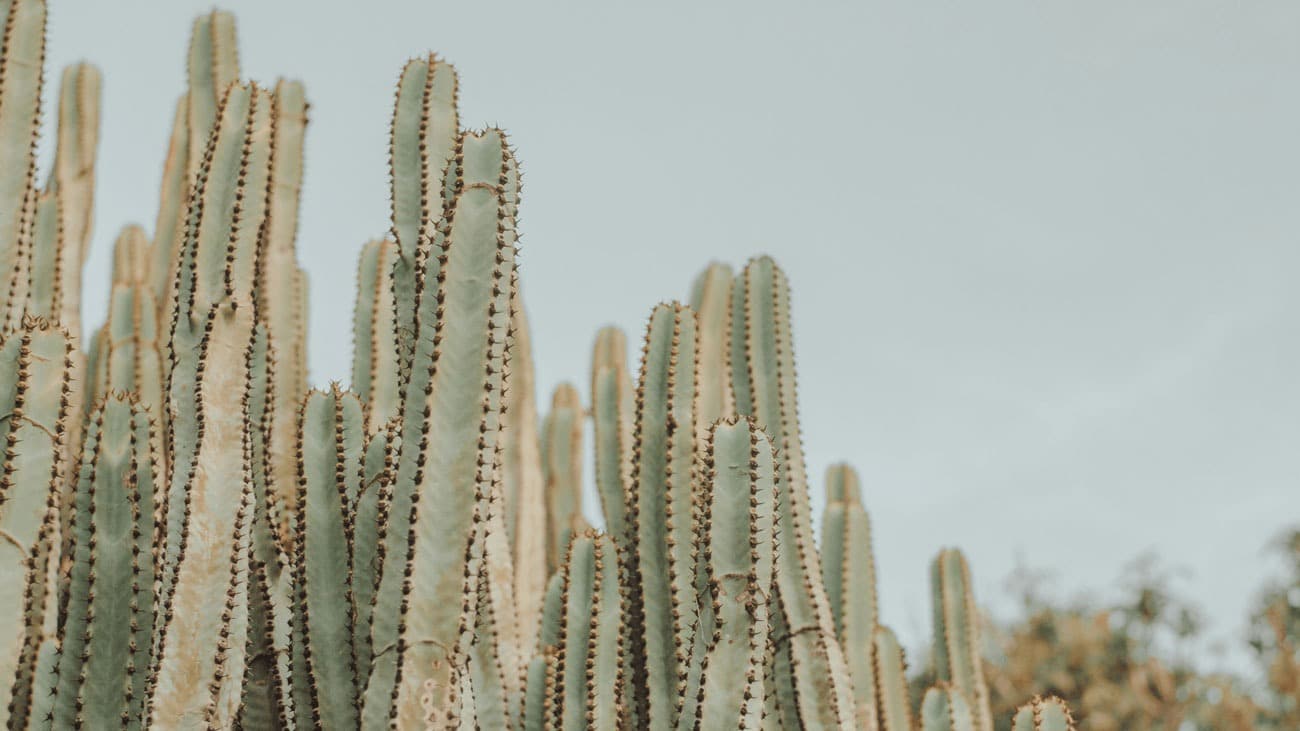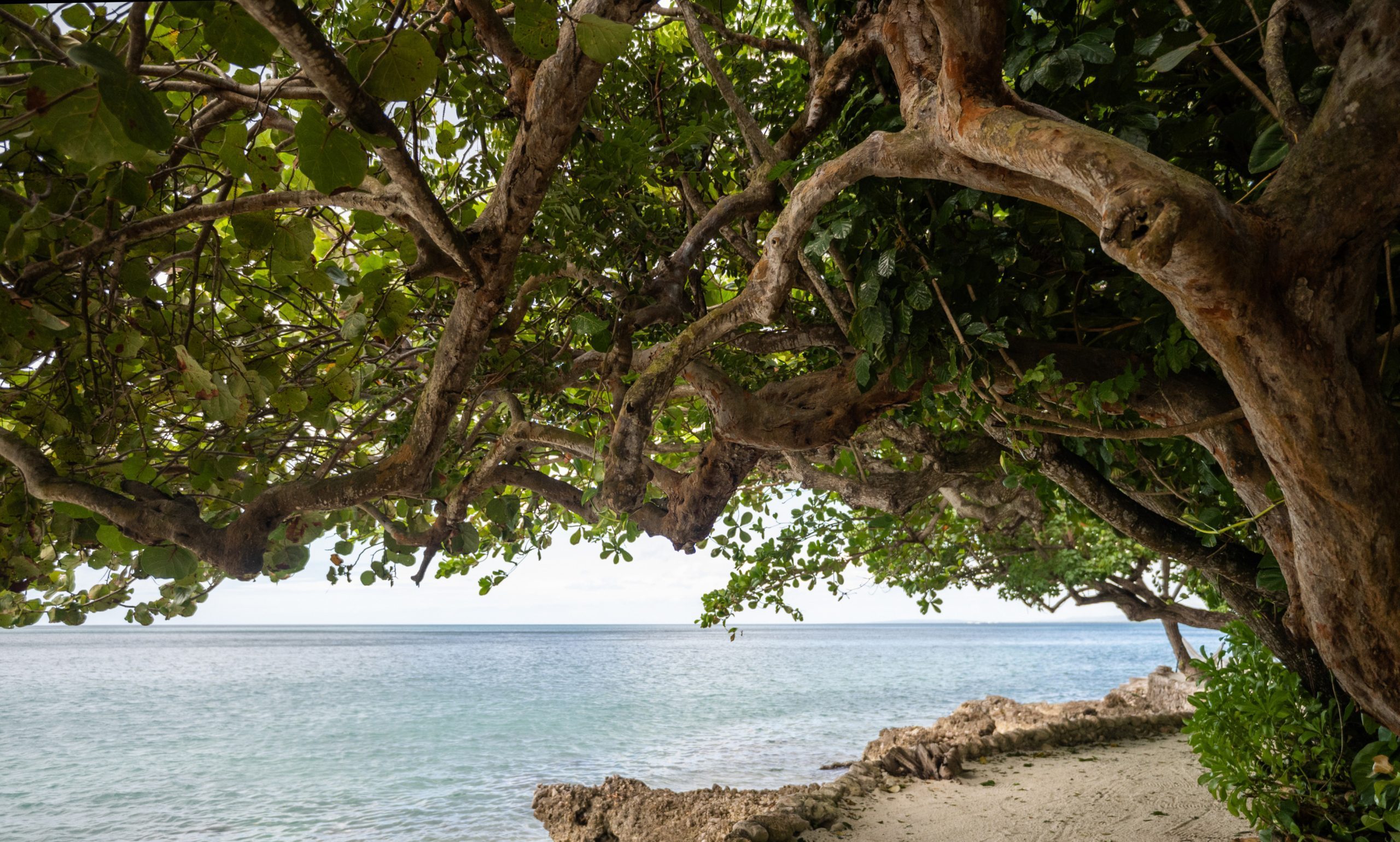
What to Expect from a Psilocybin Retreat
Learn what to expect from a psilocybin retreat, including preparation, guided experiences, integration practices, and benefits of a supportive retreat setting.
Published on: October 14, 2025
Inside the Psilocybin Retreat Experience: Setting, Guidance, and Personal Growth
Psilocybin retreats are an option for people looking for a missing piece of the puzzle in their lives. This might be relief from emotional distress, which conventional treatment hasn’t alleviated; it could be a deeper sense of connection to self, others, and the world; or it might be the discovery of personal meaning and purpose. A psilocybin retreat is an opportunity for many kinds of goals to be realized.
But before signing up for a psilocybin retreat, it’s crucial to know what to expect from the experience. This will ensure that you feel prepared and ready for all aspects of the journey, including not just the session itself, but also the post-session phase of integrating what you’ve learned.
Let’s delve deeper into what you can expect from a psilocybin retreat experience.
What is a Psilocybin Retreat?
A psilocybin retreat involves taking psilocybin mushrooms or psilocybin truffles (if you’re in the Netherlands) at a retreat center. Psilocybin is considered a classic psychedelic. When ingested in the form of mushrooms, truffles, or in synthetic form, this compound converts into psilocin, which is what causes psychedelic effects. These psychedelic effects primarily arise from action at serotonin 5-HT2A receptors. However, more recent research has discovered that psilocybin affects dozens of different neurons within the brain.
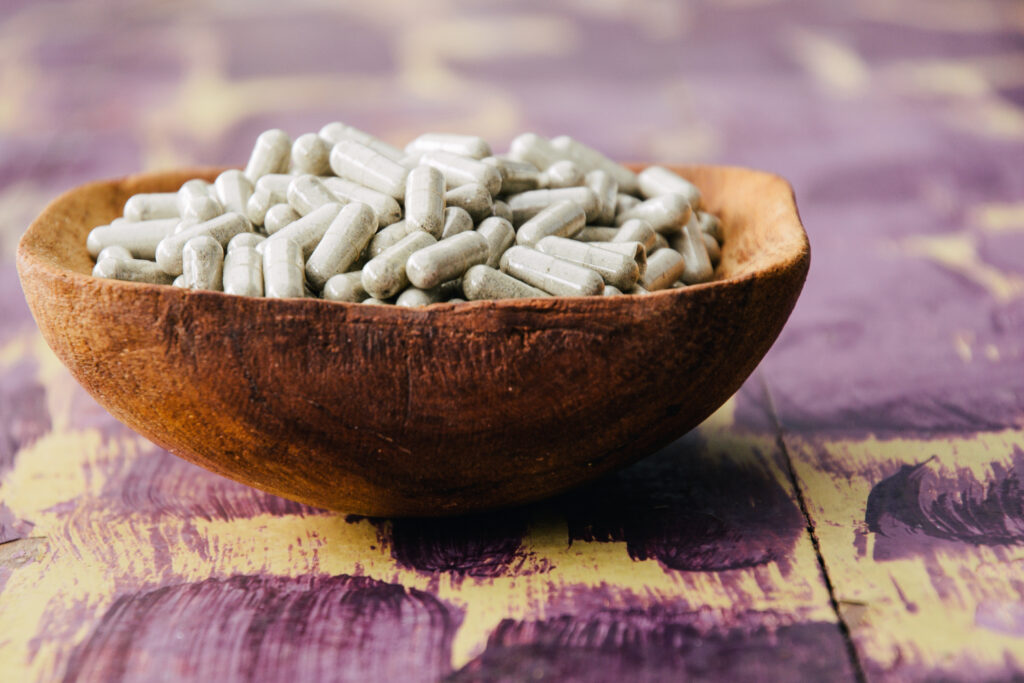
Like other psychedelic retreats, a psilocybin retreat typically takes place in a nature-based setting. Staff on hand will include facilitators, who will help guide and support you during the preparation, dosing, and integration phases of your psilocybin retreat experience.
Ideally, these facilitators will have mental health training and experience in professional therapeutic roles, such as qualified psychologists, psychotherapists, or other relevant fields.
Most psilocybin retreats involve groups of a limited size, although there is often an option of a private psilocybin retreat, with just you and the facilitators, if you prefer a more personalized experience.
Why People Attend Psilocybin Retreats: Healing, Growth, and Connection
At MycoMeditations, we continue to encounter new reasons why people want to join one of our psilocybin retreats. However, we also recognize that there are common motivations people have for seeking out a psilocybin retreat experience. These include:
- Healing from a long-term mental health issue, such as depression, anxiety, PTSD, and end-of-life distress.
- Dealing with grief.
- Emotional catharsis.
- Self-understanding and self-development.
- Wanting to experience more connectedness to oneself, others, nature, and the world.
- Feeling lost and unsure what the next step in one’s life should be, which often centers around feeling stuck in one’s career and relationships.
- The search for a greater sense of spirituality in life. For some attendees, this involves discovering or reconnecting to a specific religious tradition. For others, this means connecting to a ‘higher power’; while other attendees want to deepen or find a secular form of spirituality.
How to Prepare for a Psilocybin Retreat: Mindset, Intention, and Safety Tips
A crucial way to prepare for a psilocybin retreat, or any psychedelic retreat, is by setting a meaningful intention and developing a certain kind of mindset. Both help contribute to your level of preparedness.
Researchers have developed a psychedelic preparedness scale (PPS) to assess people’s readiness for a psychedelic experience. It covers four main categories:
Knowledge-Expectations: Your understanding and expectations regarding the psychedelic journey, such as the range of emotional and perceptual changes that can occur.
Intention-Preparation: Why you’re interested in guided psilocybin sessions. What do you hope to get out of the psilocybin retreat experience?
Psychophysical-Readiness: Your willingness and readiness to confront challenging emotions, experiences, and physical sensations.
Support-Planning: Having the experience in a supportive environment, as well as ensuring that networks or practices are in place after the retreat experience, to aid psilocybin integration.
At MycoMeditations, we understand that safe psychedelic use should cover all these aspects of preparation. This is why we help all attendees approach our psychedelic retreats with a readied mindset, a thoughtful intention, and a plan for the psilocybin integration phase.
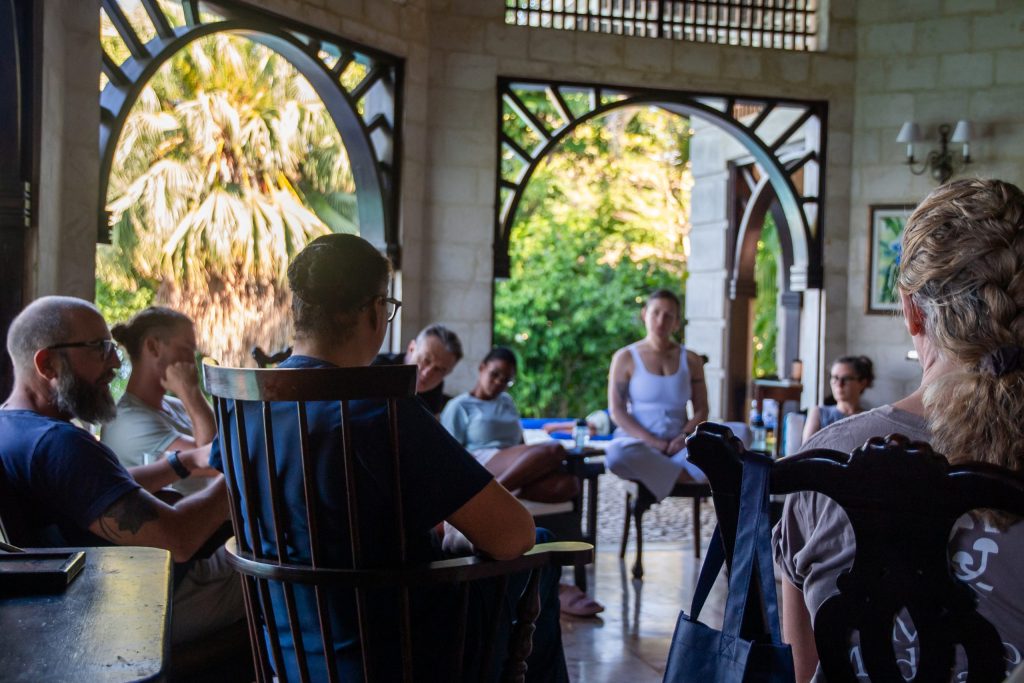
Preparing for psilocybin retreats also involves knowing how to best navigate psilocybin sessions, which, as we’ve seen, may involve challenging emotions. Researchers have found that people can turn difficult moments into positive ones by ‘surrendering’ to the experience. Indeed, in preparing participants for psychedelic therapy, therapists will encourage participants to “trust, let go, be open.” Safe psychedelic use at a psilocybin retreat means remembering to accept whatever arises, rather than resist it.
Inside the Psilocybin Retreat Experience: Guided Sessions, Dosing, and Daily Schedule
At psilocybin retreats, as with other psychedelic retreats, the day of arrival is a time to settle in and meet the facilitators and other guests. The unfolding of the retreat experience after arrival day depends on the duration of the retreat and the particular approach of the psilocybin retreat center.
MycoMeditations offers an 8-day retreat experience that follows the same structure:
Day 1: Arrival day — Arrive to the retreat, meet your fellow guests and the facilitators that will be guiding you, and relax.
Day 2: Psilocybin Session #1 — Opening discussion, preparation, and intention-setting, which is followed by the first guided psilocybin session of the retreat.
Day 3: Integration day — Group integration to discuss and better understand the psilocybin session from the day before.
Day 4: Psilocybin Session #2 — Preparation for the second dose, followed by the psilocybin session with an increased dosage.
Day 5: Integration day — Another full morning dedicated to integration of the prior day's psilocybin experience.
Day 6: Psilocybin Session #3 — Preparation followed by the final dose of the retreat, in which guests can increase, maintain, or lower their dose).
Day 7: Integration day — Integrate the full week's psilocybin experiences and build an integration plan for the return home.
Day 8: Departure day — Enjoy a final breakfast with fellow guests and then have time to say your farewells
Psilocybin retreats include accommodation (either shared or private) and all meals, including breakfast, lunch, and dinner. Meals can also be adjusted based on allergies and dietary restrictions or requests, accommodating vegetarian, vegan, and gluten-free diets.
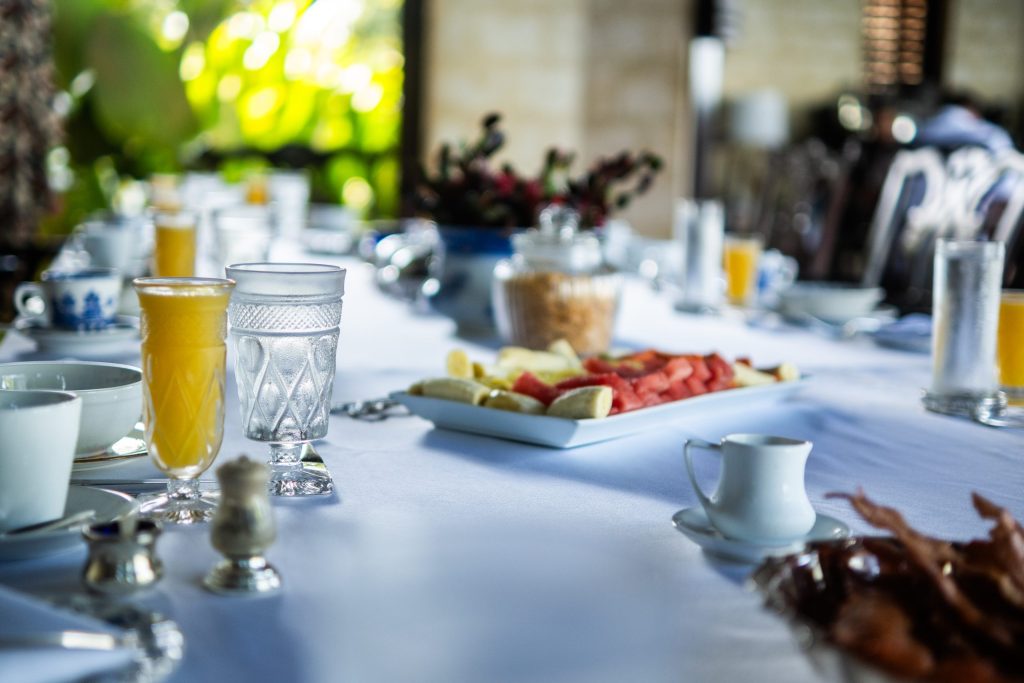
On dosing days, you will consume the psilocybin mushrooms. The dose should be something you can discuss and agree upon with the facilitation team beforehand. Typically, the psilocybin mushrooms will be administered as encapsulated, dried powder (as done at MycoMeditations) or prepared as a tea.
The number of sessions will vary, typically ranging from one to three psilocybin experiences, depending on the chosen retreat. The dose offered by retreats will also vary, but most centers will provide doses high enough to induce mystical experiences in most people.
During the guided psilocybin sessions, guests will typically lie down, wear an eyemask, and listen to a pre-selected music playlist. This helps to encourage a deep, internal, and transformative experience.
The potential effects of psilocybin mushrooms include:
- Strong emotional states
- Emotional catharsis
- Introspection
- Insight
- Altered perception (e.g., visual and auditory effects; changes to perception of time)
- Visions (especially with eyes closed)
- Mystical effects (e.g., ego dissolution, a feeling of oneness, profound joy, ineffability)
Experiences from People Who Have Attended a Psilocybin Retreat
The experiences of those who join a psilocybin retreat can vary tremendously. Each retreat offers a unique way to engage with psilocybin mushrooms, which will uniquely impact the impressions left on each person.
Damon, a past guest of MycoMeditations, rediscovered who he was underneath decades of religious programming that he grew up with, considering this a huge weight lifted from his shoulders.
Many people consider psilocybin to be one of the most meaningful experiences of their lives. Guests of MycoMeditations, such as James, describe their psilocybin retreat as “one of those “punctuation mark” events in life, where everything that happens can be referenced as happening “before” and “after.”
You can read interviews with guests such as Damon under Guest Interviews within our blog, and more stories from guests like James on our testimonials page.
The Role of Psilocybin Retreat Guides and Facilitators in Your Journey
At psychedelic retreats, guides and facilitators are there to help support you during the preparation, dosing, and integration stages of your psilocybin retreat experience.
During guided psilocybin sessions, facilitators typically adopt a ‘non-directive’ approach. This means they’re not there to steer your psychedelic journey in any particular direction. However, they can offer emotional support, such as reminders to surrender to whatever arises.
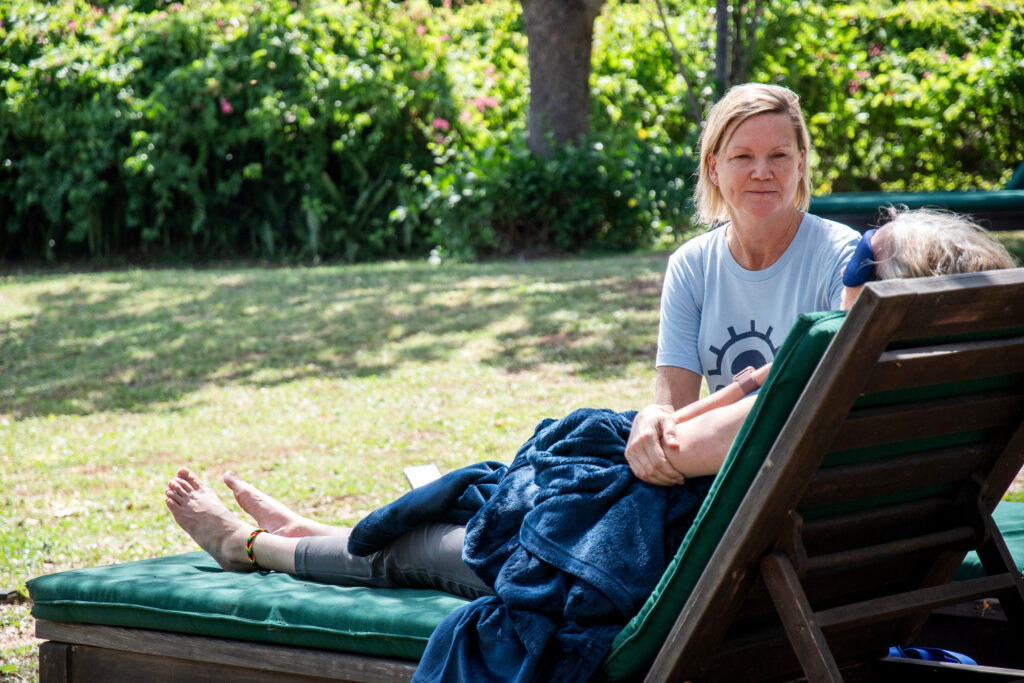
If you’re comfortable with physical touch and communicated this to a guide before a dosing session, then a facilitator may provide non-sexual nurturing touch. This can be especially helpful during a turbulent, confusing, or emotionally intense experience. Touch often has an important grounding and calming quality to it.
Many facilitators, such as those at MycoMeditations, have undergone training in psychotherapy, psychedelic therapy, and psychedelic integration. This makes them equipped to handle the variety of responses that guests have to psychedelics.
Facilitators also adopt a non-dogmatic approach during the psilocybin integration phase. They’re not there to force an interpretation onto what you experienced – instead, they may ask searching questions that help you elaborate and deepen what you experienced.
Integration Practices After the Retreat
Psilocybin integration involves making sense of what occurred during a psilocybin session, as well as applying insights and lessons from that journey to everyday life. This sense-making and application of insight may involve career and lifestyle changes, the adoption of new beliefs, new attitudes and habits, or a different perspective on oneself and others. Many of these changes occur, or are enhanced by, certain integration practices. These include:
- Meditation
- Breathwork
- Journaling
- Sessions with a psychotherapist or psychedelic integration coach
- Spending time in nature
- Staying in touch with retreat experience attendees
- Prioritizing necessary conversations
- Connecting to a community (e.g., a psychedelic, spiritual, or religious community)
- Re-listening to music played during the psilocybin session
- Creating art
- Reading texts relevant to one’s experience
- Attending psychedelic integration circles
Benefits of Attending a Psilocybin Retreat
There are many potential benefits one could experience from attending a psilocybin retreat. Research has found that psychedelics such as psilocybin can offer the following enduring benefits:
- Alleviation of depression, generalized anxiety, social anxiety, PTSD, anorexia, end-of-life distress in the terminally ill, and various forms of addiction.
- Increased openness.
- Reduced neuroticism.
- Enhanced connection to nature.
- Increased empathy.
- A boost in creativity.
- A greater degree of mindfulness.
- Enhanced meaning in life.
- Stronger feelings of connectedness to others.
Safety, Legality, and Considerations to Keep in Mind
Psilocybin retreats have certain exclusion criteria, meaning people with certain conditions should avoid consumption of psilocybin mushrooms. This is to ensure safe psychedelic use. Psychedelic retreats typically exclude people with a personal or family history of schizophrenia, bipolar disorder, or psychotic behaviors.
Safe psychedelic use at psilocybin retreats also involves checking to see what medications guests are taking, such as psychiatric medication. This is to avoid any contraindications (negative reactions) with psilocybin. Those who have heart issues or who are pregnant, breastfeeding, or in the postpartum period should also avoid attending a psilocybin retreat for safety reasons.
Psilocybin retreats are fully legal and popular in Jamaica and the Netherlands, as well as in Oregon and Colorado. They are decriminalized and popular in Spain and Portugal, and religious exemptions create loopholes for retreat access in Mexico.
Make sure to check the legal status of psilocybin in the country in which you plan to have the retreat experience. In countries where psilocybin is illegal, psilocybin retreats may still operate underground. But they are unregulated and often lack the professionalism and safe psychedelic use standards seen in legal psychedelic retreats.
Conclusion: Approaching Psilocybin Retreats with Openness and Care
Psilocybin retreats can be a powerful experience. They are not like other wellness retreats. They can involve the stirring of strong emotions and spiritual experiences. For this reason, it’s important to feel that you trust the guides and facilitators who will be present during your experience, and that you feel safe and calm in the environment where the retreat experience will take place. In a peaceful, natural setting, with highly experienced and ethical guides present, it is easier to sink deeply into an altered state of consciousness – and this offers the potential for profound healing.
FAQs
What can participants expect during a psilocybin retreat?
Guests can expect to experience an altered state of consciousness, characterized by changes in emotions, perceptions, ways of thinking, physical sensations, and sense of self.
How should someone prepare for a psilocybin retreat?
We recommend that guests feel rested and focused before a psilocybin retreat. Guests should also prepare themselves by knowing what the retreat experience will entail, the possible effects of psilocybin, and having a clear intention before arriving. It's wise to cultivate a mindset of openness and trust in the time leading up to a retreat, as this will allow you to surrender fully to the experience and receive the deepest healing possible.
What role do facilitators play in the experience of a psilocybin retreat?
Facilitators establish rapport to help guests feel safe, comfortable, and open to the psilocybin experience on arrival day, during the psilocybin session, and during the integration days. Skilled facilitation can greatly impact the depth of psilocybin experience, as their guidance and support creates a feeling of safety which can result in deeper, more significant breakthroughs. Facilitators also play a key role in helping people navigate psilocybin experiences and in helping people become unstuck should challenges arise during the journey.
How does integration help after a psilocybin retreat?
Integration helps with ‘turning altered states into altered traits’. It is a way of clarifying what occurred during the guided psilocybin sessions and how best to apply those insights to one’s life moving forward, in a way that enhances overall well-being. Integration, in other words, helps to both maximize and extend the benefits of the psilocybin retreat experience.
What are the potential benefits and considerations of psilocybin retreats?
The potential benefits of psilocybin retreats include improved mental health, relationships, life satisfaction, sense of meaning and purpose, and connection to nature. However, psilocybin retreats are not a quick fix or panacea. Guests continue to learn and grow from their retreat experience long after it is over, which might involve a further psilocybin retreat or continued psilocybin integration.
